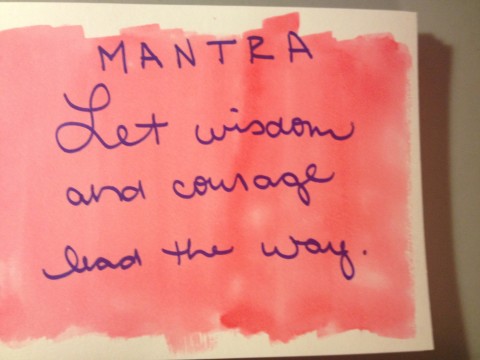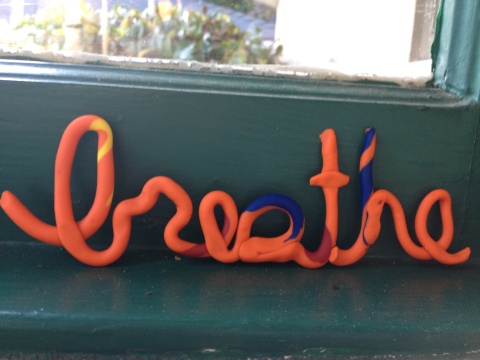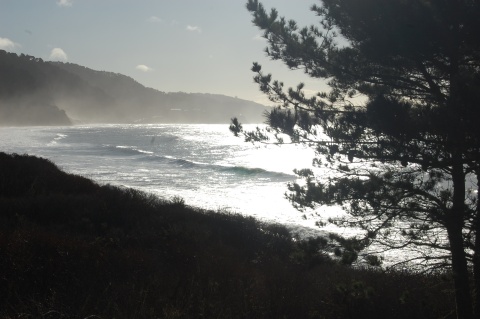Blog Changes
May 13, 2014
We’ve been hard at work. Or rather, my husband Charlie and our friend Louie in the Philippines have been hard at work on our blog.
We’re trying to make it easier for everyone to find us. And once people find us, we’re trying to make it easier to understand who we are, what we’re up to and how you as readers can make a difference. We thought it would make sense to merge the blog and the webstore so that our soap and the story behind our soap are together.
As these things often go when you’re patching them together in your off hours from a long-hours-kind-of-job, the migration didn’t go exactly as planned. I’ll spare you all the details. For those who want to, you can now find both the blog and the webstore over at www.frustratedfarmgirl.com. If you get e-mail updates, those have been transferred over and nothing will change for you. For those who subscribed through WordPress, if you want to continue following the blog, you will need to resubscribe. Sorry for the inconvenience. There is a subscription button at the bottom of the page. Click here to find that.
Again, my apologies for the way this rolled out. Our intention was for you to know before the migration. But, onward we go, and we hope that you will come with us.
Best Documentaries to Learn about Human Trafficking
April 14, 2014
My friend John wrote to me recently and asked me what documentaries I recommend about trafficking. I’ve watched a few, but my list wasn’t very extensive. So, I put a call-out over Twitter to get help from my friends in the anti-trafficking movement to see what films they recommend. Here’s what came back:
Not My Life
Brian Wo from the Bay Area Anti Trafficking Coalition (BAATC) recommended Not My Life. He said of the film is the BAATC’s “current ‘go to’ film that looks at the many different types of trafficking from labor to sex from US to international, and it follows individual stories in an engaging way.
Here is the trailer:
While the film is 90 minutes long, below is the 32 minute version:
The Dark Side of Chocolate
Brian also reminded me about The Dark Side of Chocolate. It’s a slow film, but very informative about the link between chocolate and child slavery in Ivory Coast.
Here is the film:
Here are International Justice Mission’s recommendations:
At the End of Slavery
Here is the full film:
Rape for Profit
This film explores sex trafficking in Seattle. It is available on iTunes. Here is a the trailer:
Half the Sky
Here is a trailer of the film:
You can also purchase the film here.
SOLD
So, I just watched the first ten minutes of this, and it took my breath away. It explores domestic sex trafficking. Both parts are available on youtube and are imbedded below.
Part 1
Part 2
Call + Response
Mark Fisher from the Red Window Project suggested Call + Response, which is one of my favorite documentaries. Over 2.2 children are sold for sex every year. That sentence I just wrote? The space that takes you to? That space of rage and grief. That space of despair- don’t hang out there. Anger and grief are appropriate responses. I totally get that space, and I’ve spent my share of time in that space of despair. But, if you stop there, you’ve missed the part where you get to be a part of the solution. Do something about it. Justin Dillon, the director, is one of the coolest, hippest people I know of. He’s doing something about it with this film. You should check out what else he’s up to at Made in a Free World.
The trailer is below. If you’re local, I would be glad to lend it to you. Or, you can buy it here.
What about you? Are there documentaries about human trafficking that you would recommend? Or have you already seen some of these documentaries? If so, what did you do with it? It’s ok if it’s still just a seed that’s germinating. I would love to hear about your response is to any of these films.
Dsenyo Easter Basket Animals
April 8, 2014
We updated our post on Easter chocolate a few weeks ago. All of our old recommendations still stand! In fact, I just put in a group order yesterday for Mama Ganache.
Today, I would love to introduce you to one of my favorite fair trade vendors, Dsenyo. John and Marissa Perry-Saints are the owners, and I met them at the Fair Trade Federation conference last year. Awesome people. While they make many wonderful fair trade goods, today I want to tell you about their stuffed animals. They are absolutely perfect for Easter baskets. All sell for $24. While all are super cute, my personal favorite is the elephant- just because I love elephants.
These cute stuffed animals are made by the Mwayiwathu HIV Support Group in Malawi. According to Dsenyo’s website:
Mwayiwathu HIV Support Group (Malawi) is comprised of 17 members, primarily women afflicted by AIDS, either personally or within their family. Just over one third of the women are widows who have lost their husband to the virus. Widowhood often leaves Malawian women economically disempowered and socially excluded; Mwayiwathu creates opportunity and works for change. The women in this group use their wages to send their kids to school, pay for transport to the hospital to get ARVs, make improvements to their homes, and invest in side business ventures. One woman mentioned she has been able to use the sewing skills learned at Mwayiwathu to stitch school uniforms for her children and others in the community, which makes her very proud!
We don’t have a financial relationship with Dsenyo. We just love what their company is doing! Plus- that fox? Love!
This is the blog article that I’ve been wanting to read for so long. While our family has made an ongoing attempt to reduce our waste, my awesome friend Jacki puts us to shame. Check out what she does to reduce her waste. My challenge to you is to pick one thing. Does one of these seem like something you could implement? If so, give it a try. It’s small habits over time that can make a big difference.
Frustrated Farmgirl in Social Media
April 1, 2014
We’re so grateful that Lissette Cannizzaro has joined our team in helping with social media! She’s done amazing work in a very short period of time. A long time follower of our blog, she was an answer to prayer. She has a strong heart for justice and serving marginalized people around the world, and she’s savvy with social media. It’s been a true blessing for me to get to work with her!
Lissette is making it easier for us to stay connected with you. We hope you’ll join us and help us spread the word! Here’s where you can find us.
Frustrated Farmgirl on Twitter
Frustrated Farmgirl on Facebook
Frustrated Farmgirl on Pinterest
Frustrated Farmgirl on Instagram
Thanks so much!
Robin
Free Trade vs. Fair Trade
March 27, 2014
Love this blog post from Fair Trade Winds on the distinction between free trade and fair trade. I hope you’ll check it out, along with the video from the Fair World Project. The fair trade movement brings enormous potential to address global poverty one person at a time. And if you’re in the Seattle area, you should check out Fair Trade Winds. Such a great store owned by wonderful people.
The Tension of Telling our Fair Trade Story
March 25, 2014
To say that I had a freak-out yesterday would be a gross understatement.
I put out HELP! text to my sister and a dear friend to request prayer. I desperately needed clarity and wisdom. Thank goodness for people who love me and want to be in this with me.
So, why the freak out? I’m writing a booklet. Trying to tell the story of the people who make our soap ingredients. Trying to tell the story of how sustainable work transforms people’s lives. Trying to tell the story about how people become less vulnerable when they have an ongoing income. How fraud is an integral part of most trafficking. It’s getting a loan for medical care that you don’t realize you will never ever be able to repay. It’s saying yes to the person who is offering to educate your daughter in the city. It’s letting your daughter go to the city to work in a friend’s friends restaurant because you can’t afford food and school fees. This fraud is the backbone of how so many traffickers operate. Our soap is about slow hope. It’s not charity that gives the poor a hand-out today. It’s development that provides a sustainable job, which brings hope and dignity over time. It’s the fact that when you can afford to feed and educate your child, you don’t need to believe the traffickers. You don’t need your daughter to go to the city for an education if you are already feeding her and paying her school fees yourself.
Discipleship sits right in the middle of our business. Stewarding our business and telling our story well. There’s the diligence of bringing every resource that we have to the table. It’s listening to the hard critique (for which I’m incredibly grateful) and leaning into how I can better articulate what we’re doing. But, after we bring every resource that we have into doing the very best job that we can do, there’s relinquishing the result.
Because I’m stepping into a story that I didn’t write. Way, way, long back, there was a crack in the Fall of humanity. As still happens today, it was rooted in deception, lies and finger-pointing. And since that brutal Fall, God has been at work using His people to make it right. We are His plan for redemption. And that’s the genesis of so many redemptive stories. From Moses to William Wilberforce to Harriet Tubman to Gandhi, God uses people to bring redemption to the world. So, yes, I need to tell the story in the very best way that I can. I need to connect the dots for people. But, in the end, the story of our company is just a subplot in God’s much bigger redemptive story. Which helps me breathe and remember that the story is way bigger than I am.
So, I’ll tell the beginning of that story with the knowledge that it’s my best shot today, and then I would love to talk with you. I would love to hear from you about the parts that aren’t hanging together. Because I want to do the people involved in this story justice.
Human Trafficking in Palestine
March 24, 2014
I’m in the midst of writing a booklet that will go out with each of our bars of soap. With the prevention of human trafficking being core to our mission, I was reading through the 2012 Trafficking in Persons report that is issued by the Secretary of State each year. Here’s what I found:
Difficult economic conditions and high unemployment render the Palestinians vulnerable to labor trafficking and exploitation in Israel and Israeli settlements. Widespread poverty and lack of economic opportunities have been cited as primary factors in human trafficking within the occupied Palestinian territory, including sex exploitation and worst forms of child labor. Finally, many cultural factors contribute to making Palestinian women and girls vulnerable to trafficking including susceptibility to family violence, forced marriage and lack of educational and employment opportunities.
I’m finding it difficult to find the words to express how grateful I am to be working with Canaan Fair Trade. I’m grateful for them and for the wonderful Palestinian people who work with them. They are making a difference. They are working to better their own futures. They are providing hope, dignity and opportunity. They are providing sustainable work and educational opportunities for their children. I’m so thankful.
Check out what these guys in Portland are doing to interrupt sex trafficking. Trafficking is so complex, and there are so many pieces to the problem. Ways and spaces to engage. I love it that these eleven men have decided to spend their time interrupting demand.
Henri Nouwen on Poverty
March 18, 2014
Loving this from Henri Nouwen this morning.
There are many forms of poverty: economic poverty, physical poverty, emotional poverty, mental poverty, and spiritual poverty. As long as we relate primarily to each other’s wealth, health, stability, intelligence, and soul strength, we cannot develop true community. Community is not a talent show in which we dazzle the world with our combined gifts. Community is the place where our poverty is acknowledged and accepted, not as something we have to learn to cope with as best as we can but as a true source of new life.
An appreciation for my own poverty has been powerful as I seek to engage in helping others out of poverty. It brings me to a place where I’m not coming to help with my own house completely in order. It brings me as a co-sojourner. It brings a humility that says “You and I are both poor- just in different ways. Let’s learn from each other.”







